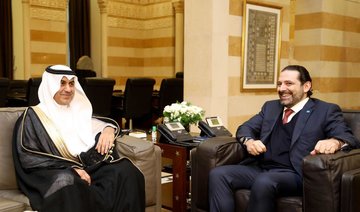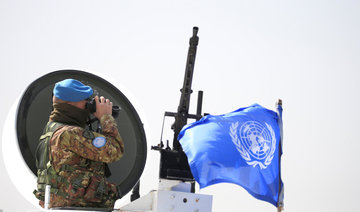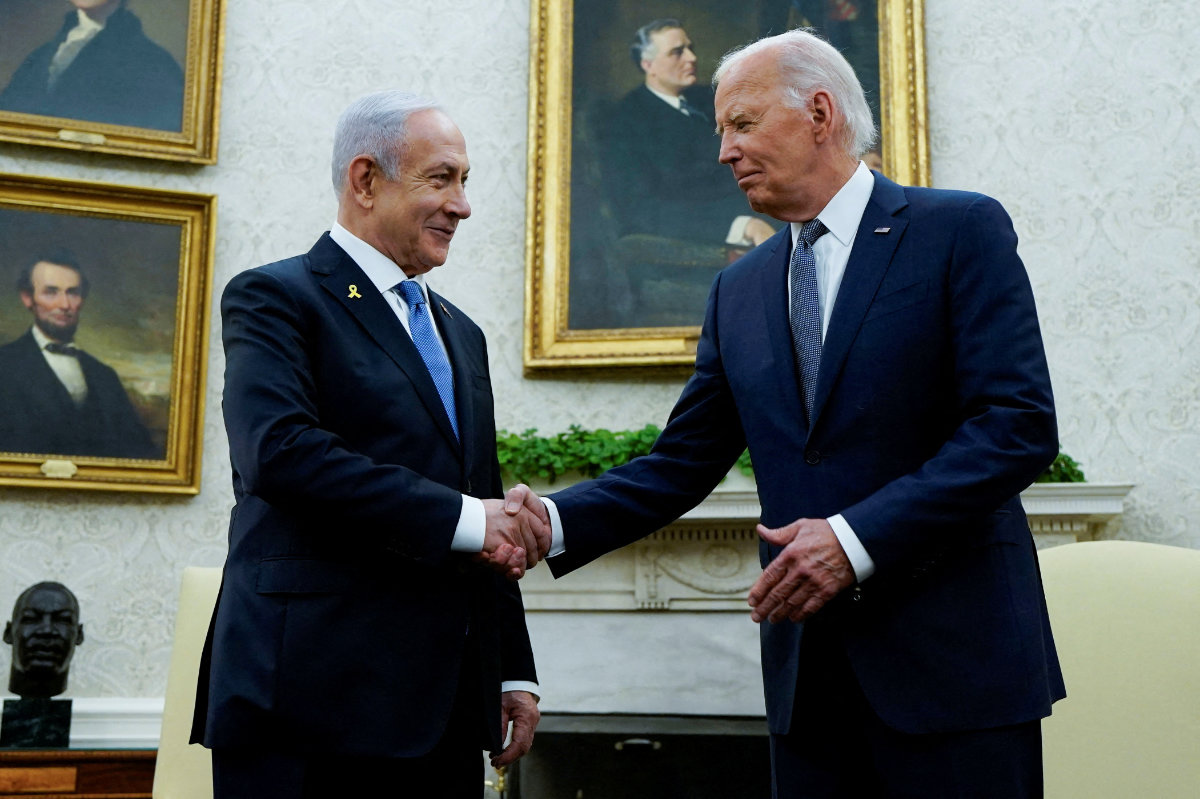BEIRUT: Nine years have passed since the last election in Lebanon, and voters could be forgiven for being excited to see some fresh young faces standing to win seats in a Parliament dominated by aging men.
But in many cases the names, and what they stand for, are all too familiar.
Nearly a quarter of the 128 seats are expected to be passed on from an older relative to another member of the family, as the country’s politics of clans and dynasties shows little sign of fading. Of these, 19 candidates are standing for seats currently held by a father or mother.
For many of Lebanon’s most powerful families, a seat in Parliament is seen as part of their inheritance.
“Our politicians are dealing with the parliamentary seat as a piece of private property, which can be inherited within the family,” said Zeina Al-Helou, the former secretary general of the Lebanese Association for Democratic Elections.
“The son — or daughter — will remain on the same political track as their parents, which turns the issue into the monopolization of politics by a number of families.”
In total, 31 seats for the May election are being contested by a child of the MP already representing that constituency. The length of the delay in running the election has only added to the number of parents deciding it’s time to hand over the reins.
In some cases the parent has passed away or been the victim of an assassination.
Tony Suleiman Frangieh exemplifies the system of political inheritance in Lebanon. He comes from a family whose dynastic story is full of the tragic plot lines entwined in the country’s history.
Born in 1987, he is a candidate for the Zagharta district, a stronghold for Christian Maronites in the country’s north. If he wins, he will be the fourth generation of the family to hold the seat.
He is the son of the current MP Suleiman Frangieh, who decided to abandon the seat in the hope of becoming president.
He took on the seat from his father, Tony Frangieh who was assassinated at “the massacre of Ehden” in 1978, in the early years of the civil war.
And his father, another Suleiman Frangieh, was also the president of the country between 1970 and 1976, the period during which the civil war erupted.
It was therefore inevitable that the young Tony Frangieh would enter politics after he gained a master’s degree in economics from UK. His recent comments to Lebanese media suggest his education has done little to provide him with an alternative political viewpoint to that of his father. “I am convinced by the alliances of my father, and I believe that these friendships serve the country,” he said.
“The national reconciliation is essential to Lebanon.” He added that he had no desire to become a member of the government. “I am a candidate to the parliament, not to the cabinet,” he said.
A staff member from Frangieh’s office told Arab News: “The son is not leaving the political track of his father, he will be reinforcing it and expanding its efficiency.”
Other hopefuls standing in May as part of the new generation are Nezar Dalloul, son of the Shiite MP and ex-minister Mohsen Dalloul, and Abdulrahman Al-Bizri the son of the Sunni MP Nazih Al-Bizri.
Michel Mouawwad, the son of the President Rene Mouawwad, who was assassinated in the late 1980s, is planning to take the seat of Zgharta-Tripoli from his mother Nayla Mouawwad, who won it after her husband’s death.
Experts say that while the elections in May will bring new blood to the national assembly, the family affiliations mean it will be unlikely to improve the way it works.
The assembly has been gridlocked for years by wrangling between the various political factions. The lack of effective governance, and the Syrian refugee crisis means that basic services in the country have deteriorated since the last election.
Walid Fakhreddine, an expert on Lebanon’s political system, told Arab News that some families consider the parliamentarian seat an exclusive right.
“The problem is the absence of real political parties which would produce a healthy parliament,” he said.
“Those who are inheriting from their parents will continue on their same track, and remaining in power is the most important thing to them; they’re seeking some kind of prestige rather than achieving development in the country.”
Election haunted by a tragic past
Among the candidates in Lebanon’s May election are a number of children of MPs who were assassinated in recent years.
In most cases, the sons and daughters still don’t know who committed the crimes.
Walid Eido, a Sunni MP and member of the Future movement, was killed by a car bomb in Beirut in 2007. His son, Zaher is standing to win his seat.
Michelle Tueni, is also standing for a seat. Her father, Gebran Tueni, was killed in 2005 by a car bomb in Beirut as he traveled from his home to his newspaper’s office. He was one of the leaders of the Cedar Revolution against Syrian occupa- tion that erupted after the assassination of the former prime minister Rafik Hariri.
Another candidate is Joseph Hobeika, the son of the MP Elias Hobeika who was assassinated in 2002.


























